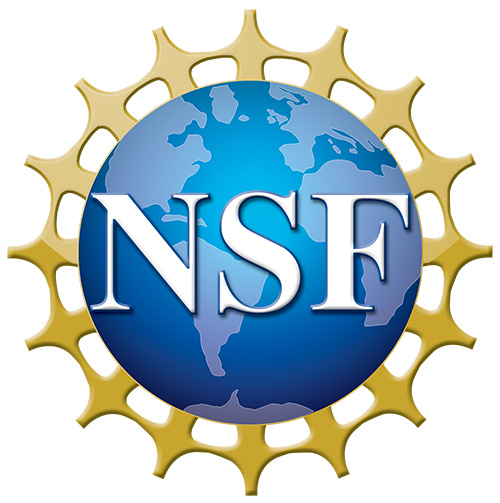Landmark College Awarded $1.2 Million Grant from the National Science Foundation
 Landmark College has been awarded a $1.2 million grant from the National Science Foundation that will provide undergraduate research opportunities, cohort support, and scholarships for neurodiverse students studying in Science, Technology, Engineering and Math (STEM) fields.
Landmark College has been awarded a $1.2 million grant from the National Science Foundation that will provide undergraduate research opportunities, cohort support, and scholarships for neurodiverse students studying in Science, Technology, Engineering and Math (STEM) fields.
The Access to Innovative Education: STEM- Providing Learning Opportunities and Scholarship (AIE: STEM-PLOS) award is the largest grant that Landmark College has received from the National Science Foundation. Funds will provide scholarships for as many as 36 students over a six-year period. First-year students may receive up to four years of support while transfer and associate degree students may receive up to two-years of scholarship support.
“There is a global need for well-educated scientists, including computer scientists, and this grant is critical for supporting high-achieving, low-income students as they pursue careers in those fields,” says Dr. Peter Eden, president of Landmark College, which exclusively serves students with learning differences such as dyslexia, ADHD, autism, or executive function challenges.
In addition to the scholarship money, the NSF grant also funds mentorships, research opportunities and internships, among other activities, to better understand how these supports improve retention and graduation rates for this student population.
This funding also supports the further development of an undergraduate research assistance program which will allow grant recipients the opportunity to become actively involved in the planning and implementation of research and scholarship at Landmark College.
Landmark College faculty member Dr. Michelle Wallace, co-principal investigator with colleagues Dr. Brian Young and Rebecca Matte, shared the team’s enthusiasm for the project, “We are excited to be able to work with and learn from such a talented and motivated group of STEM students. The project goals include sharing our lessons learned so that other educators can work with neurodiverse students with more confidence,” Wallace says.
Eden points out that the project has the potential to diversify participation in STEM fields and foster a strong STEM identity in neurodiverse students that will support their academic and career success.
“This project builds on our current model of individualized, well-resourced support in ways that will help us understand the psychosocial factors that contribute to early career success for neurodivergent students,” says Eden.
ABOUT THE NATIONAL SCIENCE FOUNDATION
The National Science Foundation (NSF) is an independent federal agency that supports fundamental research and education across all fields of science and engineering. In fiscal year (FY) 2020, its budget is $8.3 billion. NSF funds research in all 50 states through grants to nearly 2,000 colleges, universities and other institutions. Each year, NSF receives more than 50,000 competitive proposals for funding and makes about 12,000 new funding awards
ABOUT LANDMARK COLLEGE
Landmark College was the first institution of higher learning to pioneer college-level studies for students with dyslexia. Today, Landmark College is a global leader in integrated teaching methods for students with learning disabilities (including dyslexia), ADHD, autism, or executive function challenges. The College offers bachelor's and associate degrees, and online programs such as dual enrollment courses for high school students and College START for post-graduate/gap year students, professional development for educators, online post-baccalaureate certificates for educators and professionals, and summer programs for neurodivergent students.
###